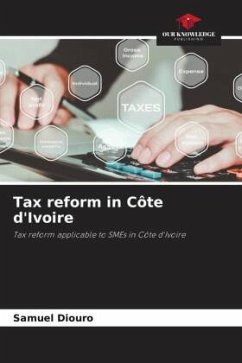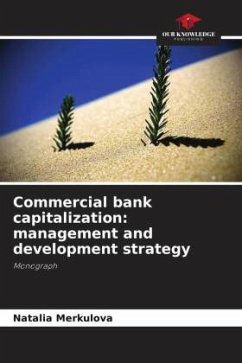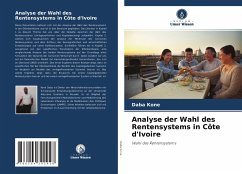
Analysis of the choice of pension plan in Côte d'Ivoire
Pension Plan Choice
Versandkostenfrei!
Versandfertig in 6-10 Tagen
45,99 €
inkl. MwSt.

PAYBACK Punkte
23 °P sammeln!
This thesis focuses on the analysis of pension plan choice in Côte d'Ivoire and is structured around three axes. The literature in Chapter 1 on this subject has enlightened us on the debate between the choice of pension scheme (pay-as-you-go and capitalization). Chapter 2 is essentially devoted to an analysis of the characteristics of the Ivorian pension system and the influence of demographic and economic developments on its mode of operation. Finally, in Chapter 3, we carry out a comparative analysis of the two pension systems on the basis of a simulation of the dynamics of the Ivorian econ...
This thesis focuses on the analysis of pension plan choice in Côte d'Ivoire and is structured around three axes. The literature in Chapter 1 on this subject has enlightened us on the debate between the choice of pension scheme (pay-as-you-go and capitalization). Chapter 2 is essentially devoted to an analysis of the characteristics of the Ivorian pension system and the influence of demographic and economic developments on its mode of operation. Finally, in Chapter 3, we carry out a comparative analysis of the two pension systems on the basis of a simulation of the dynamics of the Ivorian economy, using parameters specific to the Ivory Coast. To do this, we used a theoretical model with overlapping generations inspired by Diamond (1965). The first result of this analysis shows that in the specific case of Côte d'Ivoire, the performance of the funded scheme is better than the performance of the pay-as-you-go scheme. The second result shows that savings are better in the presence ofa funded pension plan and are less good in the presence of a pay-as-you-go plan.












